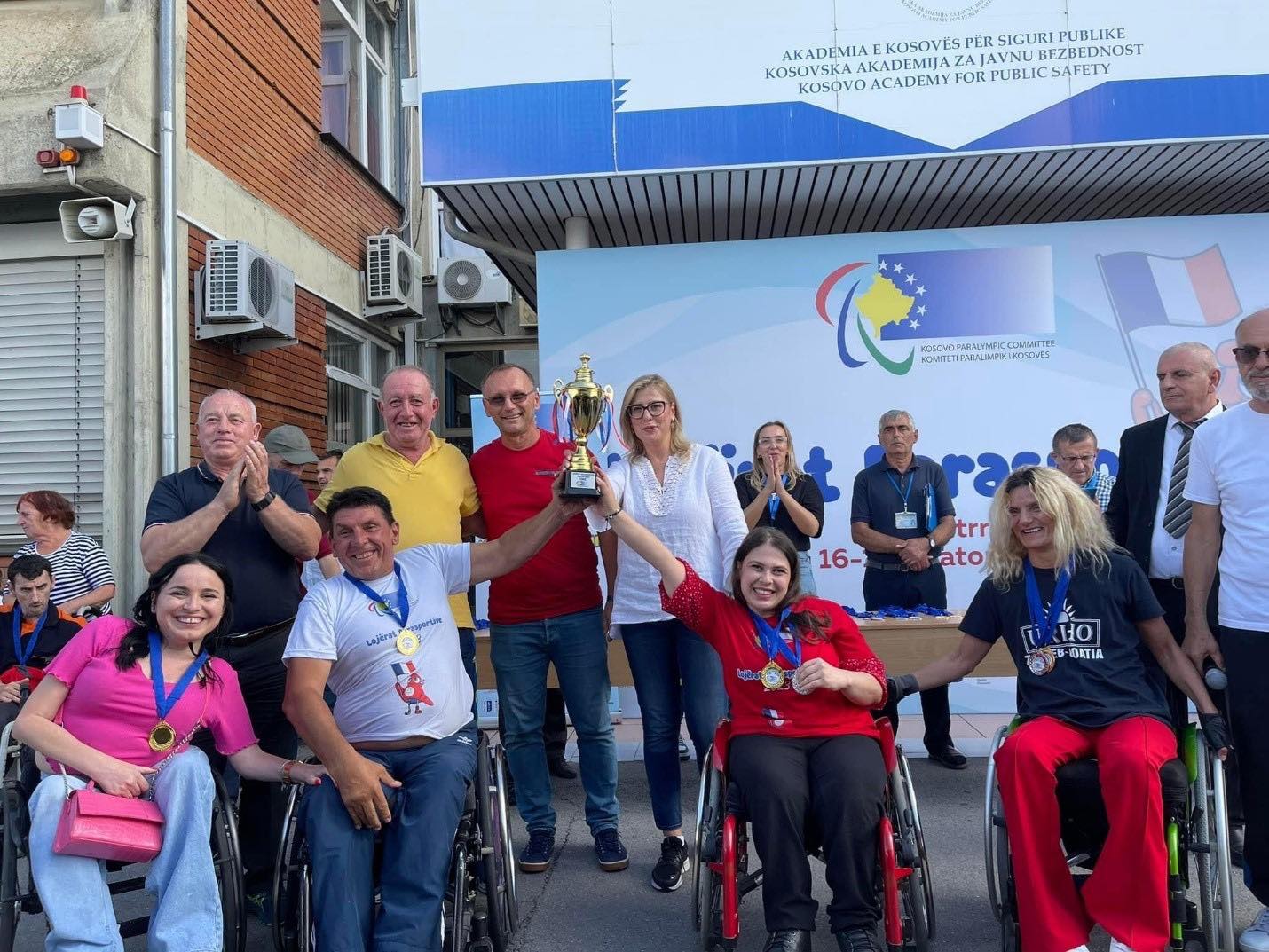
For a long time, the Kosovo Paralympic Committee (KPC) carried a powerful mission—to represent and support athletes with disabilities across the country. They had the vision. They had the passion. What they didn’t yet have was the internal structure that would allow them to truly step onto the global stage. Behind the scenes, the reality was more complex than it might seem from a distance. Like many organisations built from the ground up, KPC had to navigate limited resources, unclear legal pathways, and the growing pressure to meet international standards, especially as they aimed to become a full member of the International Paralympic Committee (IPC).
This kind of membership is more than symbolic—it’s a gateway. It means legitimacy, recognition, access to international competitions and funding, and most importantly, representation for athletes who’ve already had to fight too hard for visibility. But for years, that door remained just slightly out of reach.
What has KPC achieved?
Through strategic support, mentoring, and targeted technical assistance, the organisation was able to unlock the full potential of its mission. KPC didn’t just receive support—they acted on it. With clear goals and determination, they carried out a major internal transformation that positioned them to succeed on the international stage. Amongst other major achievements, KPC was able to revise its statute so that it reflected both national law and IPC requirements, develop internal regulations that brought clarity, accountability, and a stronger foundation for leadership decisions and ensure all governance documents were fully aligned with the criteria expected of a globally recognised Paralympic committee.
“The collaboration we had with the Resource Centre for Civil Society has not only empowered our central organisation but also strengthened the entire Paralympic sports community by sharing knowledge and tools with our member federations.” – Njomza Emini, head of KPC
What Changed?
When KPC submitted their revised application to the IPC, something had shifted. It wasn’t just a document—it was a declaration: We are ready.
This time, they didn’t just meet the requirements—they demonstrated that they could operate with transparency, responsibility, and a clear commitment to international norms. And it paid off. KPC was accepted as a full member of the International Paralympic Committee. For the athletes they represent, this means more than words can express. It means standing shoulder to shoulder with peers from around the world. It means funding opportunities, access to global competitions, and a seat at the table in decisions that affect the future of adaptive sports. It also means something even more powerful: recognition.
As Njomza stated, “We are now better prepared, more resilient, and deeply inspired to continue advancing the rights and participation of People with Disabilities in sports”.
What does this show?
We’ve seen it time and again—when the right support meets the right determination, real change happens. The success of KPC shows just how transformative strong internal governance can be. It’s not always visible to the public eye, but it’s the backbone of progress. Their journey reminded us that excellence doesn’t come from ticking boxes—it comes from an organisation’s own readiness to evolve and lead with purpose.
“The support we’ve received has been pivotal in strengthening our internal capacities, strategy, and public image, enabling us to better represent our work to partners and donors.” – Njomza Emini, head of KPC.
KPC has set a new standard for what an empowered, mission-driven organisation can accomplish. They have become a model of how institutional readiness and ambition can translate into international recognition, and how athletes with disabilities in Kosovo can finally take their rightful place on the world stage.
This story was produced in coordination with the Kosovo Resource Centre for Civil Society.
